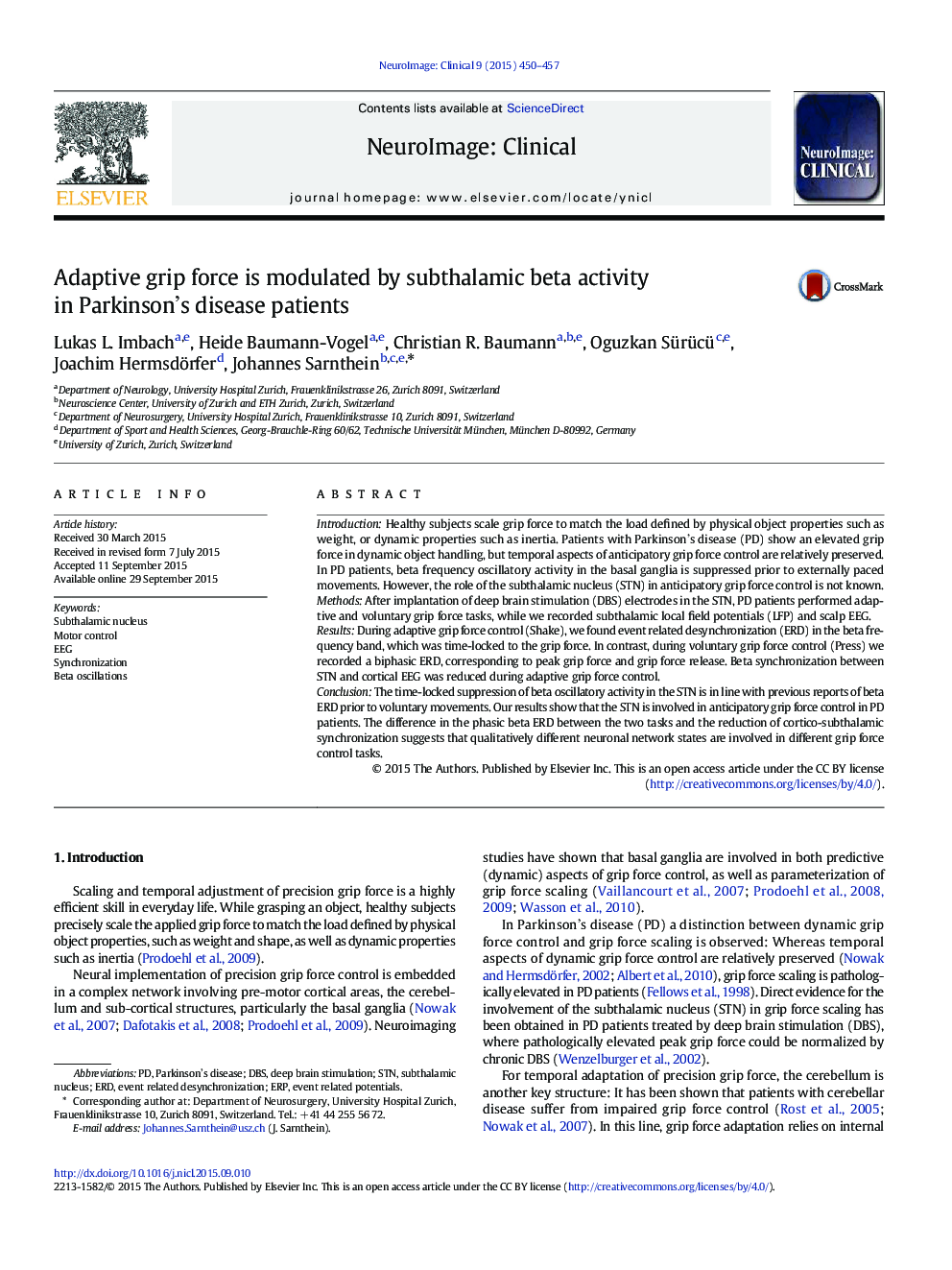| Article ID | Journal | Published Year | Pages | File Type |
|---|---|---|---|---|
| 3075193 | NeuroImage: Clinical | 2015 | 8 Pages |
•Subthalamic nucleus is involved in anticipatory grip force control in PD patients.•Subthalamic beta activity is the first derivative of grip force in a shaking task.•Synchronization between STN and cortex is reduced during the shaking task.
IntroductionHealthy subjects scale grip force to match the load defined by physical object properties such as weight, or dynamic properties such as inertia. Patients with Parkinson's disease (PD) show an elevated grip force in dynamic object handling, but temporal aspects of anticipatory grip force control are relatively preserved. In PD patients, beta frequency oscillatory activity in the basal ganglia is suppressed prior to externally paced movements. However, the role of the subthalamic nucleus (STN) in anticipatory grip force control is not known.MethodsAfter implantation of deep brain stimulation (DBS) electrodes in the STN, PD patients performed adaptive and voluntary grip force tasks, while we recorded subthalamic local field potentials (LFP) and scalp EEG.ResultsDuring adaptive grip force control (Shake), we found event related desynchronization (ERD) in the beta frequency band, which was time-locked to the grip force. In contrast, during voluntary grip force control (Press) we recorded a biphasic ERD, corresponding to peak grip force and grip force release. Beta synchronization between STN and cortical EEG was reduced during adaptive grip force control.ConclusionThe time-locked suppression of beta oscillatory activity in the STN is in line with previous reports of beta ERD prior to voluntary movements. Our results show that the STN is involved in anticipatory grip force control in PD patients. The difference in the phasic beta ERD between the two tasks and the reduction of cortico-subthalamic synchronization suggests that qualitatively different neuronal network states are involved in different grip force control tasks.
